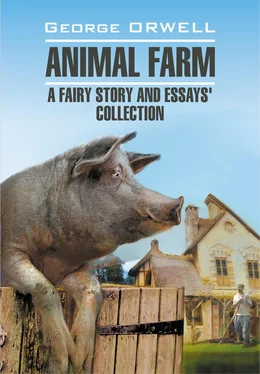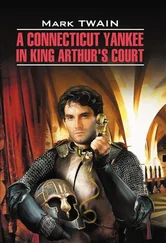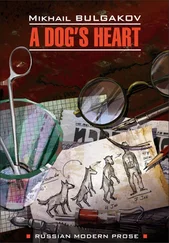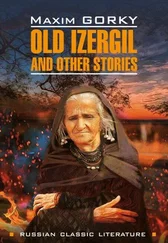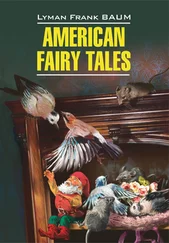I have never been back to St Cyprian’s. Reunions, old boys’ dinners and such-like leave me something more than cold, even when my memories are friendly. I have never even been down to Eton, where I was relatively happy, though I did once pass through it in 1933 and noted with interest that nothing seemed to have changed, except that the shops now sold radios. As for St Cyprian’s, for years I loathed its very name so deeply that I could not view it with enough detachment to see the significance of the things that happened to me there. In a way it is only within the last decade that I have really thought over my schooldays, vividly though their memory has always haunted me. Nowadays, I believe, it would make very little impression on me to see the place again, if it still exists. (I remember hearing a rumour some years ago that it had been burnt down.) If I had to pass through Eastbourn I would not make a detour to avoid the school: and if I happened to pass the school itself I might even stop for a moment by the low brick wall, with the steep bank running down from it, and look across the flat playing field at the ugly building with the square of asphalt in front of it. And if I went inside and smelt again the inky, dusty smell of the big schoolroom, the rosiny smell of the chapel, the stagnant smell of the swimming bath and the cold reek of the lavatories, I think I should only feel what one invariably feels in revisiting any scene of childhood: How small everything has grown, and how terrible is the deterioration in myself! But it is a fact that for many years I could hardly have borne to look at it again. Except upon dire necessity I would not have set foot in Eastbourne. I even conceived a prejudice against Sussex, as the country that contained St Cyprian’s, and as an adult I have only once been in Sussex, on a short visit. Now, however, the place is out of my system for good. Its magic works no longer, and I have not even enough animosity left to make me hope that Flip and Sambo are dead or that the story of the school being burnt down was true.
Answer the following questions:
1. Who was Mrs Wilkes?
2. What was Mrs Wilkes’s nickname?
3. Why did little George cry when he was beaten up for the second time?
4. What was the great abiding lesson of George’s childhood?
5. What were the two things that stroke George quite recently?
6. What were the two main ambitions of Sambo?
7. What was the school policy concerning rich boys?
8. What were the terms that George was at St Cyprian’s?
9. The greatest outrage was the studying of history, was not it?
10. What was Beachems’s desire after his failure at the exam for scholarship?
11. Was there any distinction in treatment of rich and poor boys in scholarship class?
12. What was the mark of status according to distribution of weakly pocket-money?
13. Why did the allusions on poverty and dependent state at school affect George a lot?
14. What was the reason for George to start running away from the sweet-shop?
15. What kinds of expeditions were there in the summer afternoons?
16. How did Flip call natural history usually?
17. What was the difference between expensive school and working-class home?
18. What happened to Hazel’s teeth at the end of term?
19. Why, to George’s opinion, was it unthinkable to complain parents about someone’s school life?
20. What was George deprived of?
21. Why did not George apply to his parents for help?
22. What was the sign of Flip’s good attitude?
23. What made George really proud sometimes?
24. What was the name of George’s true love?
25. What was the essential conflict between presented codes and real situation at school?
26. What was the real reason for the cult of Scotland at school?
27. How did Flip say ‘good bye’ to George when he was leaving the school?
28. What is George’s present attitude to the past events and people at St Cyprian’s?
Say whether the following statements are true or false:
1. Mrs Wilkes was skinny woman with wide opened eyes.
2. It was easy and nice to look into Mrs Wilkes face.
3. The Sixth Form was a group of older boys empowered to beat smaller ones.
4. Sambo was a round-shouldered curiously oafish-looking man.
5. The beating hurt George for the first time.
6. The bed-wetting was controlled and on purposely done act.
7. St Cyprian’s was an expensive and snobbish school.
8. At St Cyprian’s all subjects were equally important.
9. The success of classical education was based on corporal punishment.
10. There were two castes at St Cyprian’s.
11. George liked Sambo and Flip.
12. It is hard for a child to realize that school is primarily a commercial venture.
13. George had a profound conviction of being good through all his childhood.
14. George could say he was always unhappy at school days.
15. Brown was a man with white hair and red face like a strawberry.
16. Flip usually approved expeditions to outside.
17. George’s best memories were connected with animals contacts up to his age of twenty.
18. George was seldom in good health after the age of ten.
19. The boys at school were fed sufficiently.
20. Sambo was pleased to find out how well his son was fed at Eton.
21. Sambo stole the money given for a cricket bat by George’s parents.
22. George left St Cyprian’s forever in summer.
23. The school that George went next was Wellington.
24. The deepest conviction George had in his soul was that he would success in future without any doubt.
25. George asserts that boarding schools are better than day schools.
In Moulmein, in Lower Burma, I was hated by large numbers of people – the only time in my life that I have been important enough for this to happen to me. I was sub-divisional police officer of the town, and in an aimless, petty kind of way anti-European feeling was very bitter. No one had the guts to raise a riot, but if a European woman went through the bazaars alone somebody would probably spit betel juice over her dress. As a police officer I was an obvious target and was baited whenever it seemed safe to do so. When a nimble Burman tripped me up on the football field and the referee (another Burman) looked the other way, the crowd yelled with hideous laughter. This happened more than once. In the end the sneering yellow faces of young men that met me everywhere, the insults hooted after me when I was at a safe distance, got badly on my nerves. The young Buddhist priests were the worst of all. There were several thousands of them in the town and none of them seemed to have anything to do except stand on street corners and jeer at Europeans.
All this was perplexing and upsetting. For at that time I had already made up my mind that imperialism was an evil thing and the sooner I chucked up my job and got out of it the better. Theoretically – and secretly, of course – I was all for the Burmese and all against their oppressors, the British. As for the job I was doing, I hated it more bitterly than I can perhaps make clear. In a job like that you see the dirty work of Empire at close quarters. The wretched prisoners huddling in the stinking cages of the lock-ups, the grey, cowed faces of the long-term convicts, the scarred buttocks of the men who had been flogged with bamboos – all these oppressed me with an intolerable sense of guilt. But I could get nothing into perspective. I was young and ill-educated and I had had to think out my problems in the utter silence that is imposed on every Englishman in the East. I did not even know that the British Empire is dying, still less did I know that it is a great deal better than the younger empires that are going to supplant it. All I knew was that I was stuck between my hatred of the empire I served and my rage against the evil-spirited little beasts who tried to make my job impossible. With one part of my mind I thought of the British Raj as an unbreakable tyranny, as something clamped down, in saecula saeculorum [22] saecula saeculorum – (лат.) на веки вечные
, upon the will of prostrate peoples; with another part I thought that the greatest joy in the world would be to drive a bayonet into a Buddhist priest’s guts. Feelings like these are the normal by-products of imperialism; ask any Anglo-Indian official, if you can catch him off duty.
Читать дальше
Конец ознакомительного отрывка
Купить книгу
